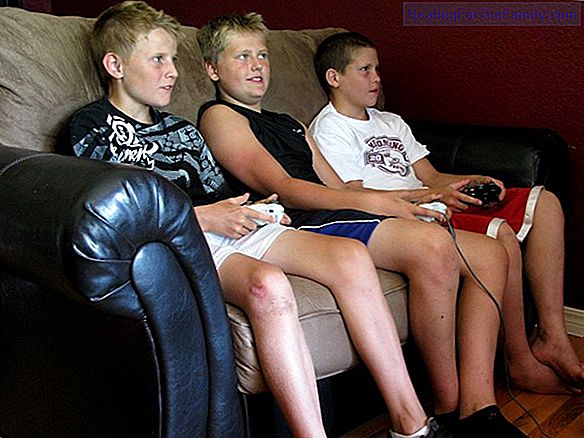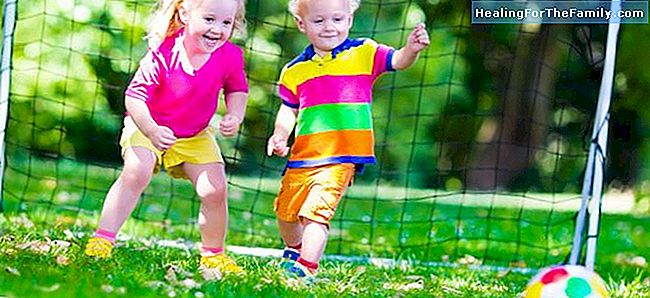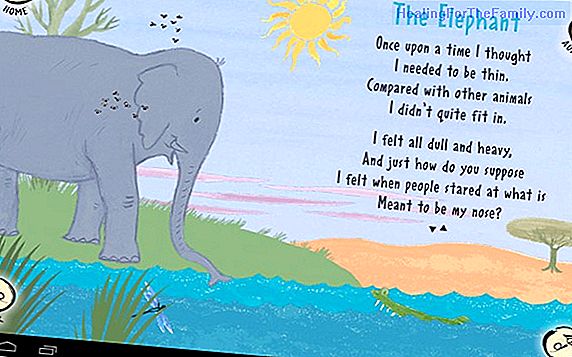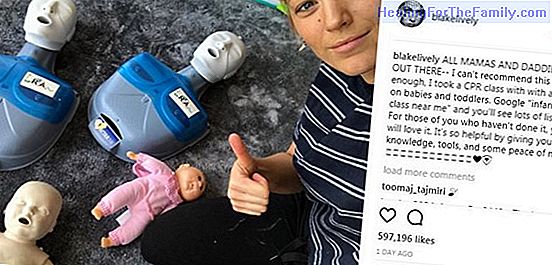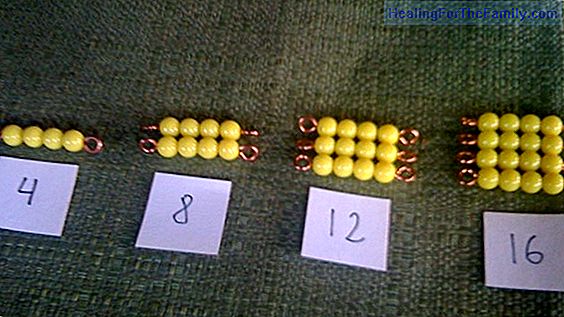How to explain a catastrophe to children from 0 to 3 years
There are times in life when traumatic situations occur and they can come in the form of an earthquake, flood, violent act, death of a loved one, etc. The child's age affects how he or she will react to this disaster. For example, a seven-year-old boy may demonstrate not wanting to go to school, whi
There are times in life when traumatic situations occur and they can come in the form of an earthquake, flood, violent act, death of a loved one, etc.
The child's age affects how he or she will react to this disaster. For example, a seven-year-old boy may demonstrate not wanting to go to school, while a teenager may downplay the tragedy, while showing a deterioration in school performance. In this case we will focus on how children from 0 to 3 years old live and what role adults play in all of them.
How a 0 to 3 year old child reacts to a catastrophe

To begin with, we must remember that each child is different and has a way of reacting. The reactions of fear, sadness and anxiety vary. They are not equal to that of adults and neither are they between those of one child and another. In addition, it is important to know that at these ages we can find that they can not express themselves linguistically in a perfect way. Therefore, we must be alert to other types of signals:
- Problems sleeping.
- Return to previous stages of development. Some of the learning behaviors can involucionar such as, for example, the return to the diapers due to the fact that he does not control sphincters again.
- More tantrums will appear and recurrently . They will cry more. We will keep in mind that the limits that existed must continue even if the first days are relaxed.- The way to show sadness in children is complex. Many times more than sad are irritable. When they can already talk, phrases like: 'I hate you, I do not love you, all this is your fault' can appear. We have to think that it is the way that children have to verbalize that sadness.
- Demand more attention. They will have more problems in moving away from the reference adult.
How to help children from 0 to 3 who lived through a catastrophe
There are many things that adults can do for a child who has just experienced a traumatic event. For example:
- Containment: It does not refer to prohibiting the child from doing something, but to do so in a controlled manner accompanying them to avoid harmful situations such as: hitting the floor or the wall.
- The child must be given security and affection so that he feels comforted.
- Calm down. Give a space for the child to cry or scream
- Keep in mind the small details, try to help the child to relax. May I have a moment of rest. We will do this by performing routines such as: singing, explaining a story, or giving him a bath with warm water ...
- Inform:
We should say things in a calm and calm tone . We will keep in mind that this step is much more important as children grow. That is to say, despite the fact that in children aged 2-3 years expressive language is not as developed, the compressive language is. Therefore, in this age it is important to explain the situation and answer questions such as:What has happened ?, What will happen from now? It is also convenient to give them an option to ask and answer them truthfully. - Normalize: Make him see that he is not the only one who has those feelings or those reactions. For example, if he sees us cry, he will let himself cry. Many times, our feeling of 'protecting' them from seeing us cry gives them the idea that doing so is wrong. We coerce the child to do it, we make him keep it and this is harmful for him.
- Consolate and try to do positive activities with them. Give them control of small tasks so that they feel useful: To raise daily routines, to see that something serious has happened, that there has been a 'break' but that life and the rest of things continue.
- Allow them to play or draw on what has happened: Do not ask them to do it explicitly, but allow it if it appears spontaneously in the child since they need to integrate it into their daily life.
If, after four weeks, this type of behavior continues to occur, we will consider consulting a specialist.


